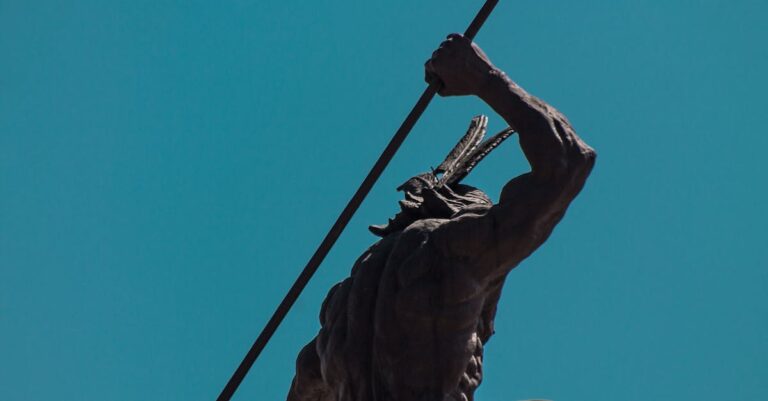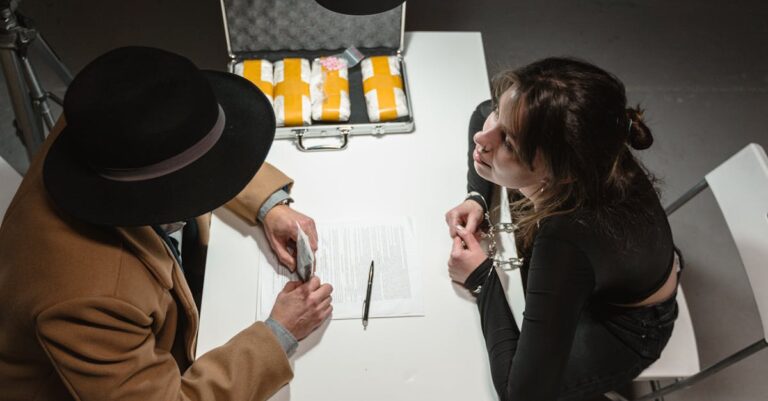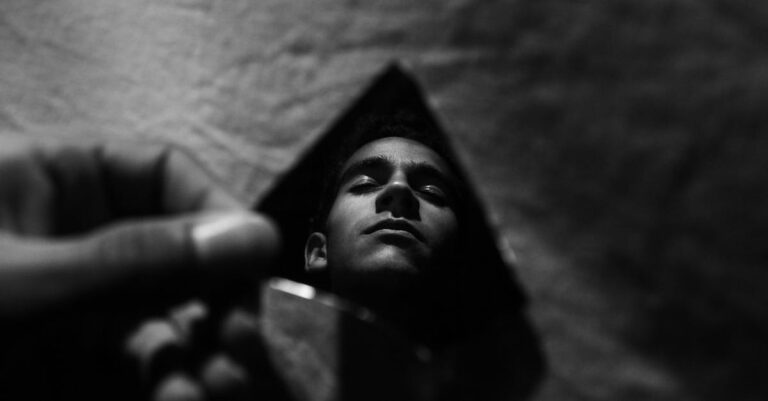
## The Ledger’s Shadow
The rain tasted like ash. Alexandre Lamousse ran a hand across the grimy window of his inherited apartment, watching Parisian streets slick with grey. November clung to the city like a damp shroud. His grandfather, Jean-Luc, had left him more than just this cramped space overlooking the Rue Saint-Jacques. He’s left a legacy of numbers, and those numbers now felt like lead weights in Alexandre’s stomach.
Jean-Luc’s firm, Lamousse & Fils – a quaint name for a business steeped in shadows—handled accounts for the city’s elite. Alexandre had spent his life thinking that meant respectable clients: merchants, lawyers, the occasional politician with a penchant for discreet transactions. He was wrong. Dreadfully, spectacularly wrong.
He opened the ledger again, the brittle pages crackling under his touch. His grandfather’s meticulous script filled the book, a labyrinth of debits and credits, dates and names. But it wasn’t the numbers themselves that churned his gut. It was what they represented. He traced a finger across the name scrawled repeatedly in Jean-Luc’s precise hand: Armand Dubois.
Dubois, a known associate of the late Maximilien Robespierre’s most vocal opponent, Jacques Roux. A man whose fiery rhetoric threatened to dismantle the fledgling Republic from within.
The ledger detailed a steady flow of funds, discreetly channeled through shell companies and Swiss bank accounts. Roux’s coffers swelled with each coded entry, funded by something far more sinister than legitimate business ventures.
A knock echoed through the apartment – a sharp, insistent rap that made Alexandre jump. He hesitated, his heart hammering against his ribs. Who would be calling on him at this hour?
He peered through the peephole. A woman stood there, her face obscured by the dim light of the hallway. Tall, with a severe posture and a dark cloak draped over her shoulders. He didn’t recognize her.
“Who is it?” he asked, his voice raspy.
“A message,” she stated, her tone clipped and professional. “For Monsieur Lamousse.”
He unlocked the door, cautiously stepping aside to let her in. She didn’t offer a name or a smile. Her eyes, cold and grey, scanned the room as if cataloging every object, every shadow.
“My grandfather left instructions,” she said, her gaze settling on Alexandre. “A contingency plan.”
“Contingency for what?”
She produced a folded piece of paper, sliding it across the small table. “Should you discover… irregularities.”
He unfolded the paper. A single sentence, written in Jean-Luc’s hand: *“Burn it all. Tell no one.”*
“That’s it?” Alexandre asked, disbelief coloring his voice.
“Your grandfather was a cautious man,” she replied, her expression unreadable. “He knew the risks.”
“Risks? This isn’t just some accounting error. This is funding a political enemy, potentially treason.”
She didn’t react to his outburst. “The Republic is fragile, Monsieur Lamousse. Loose ends are dangerous.”
“And you’re here to tie up those loose ends?”
“Let’s just say I represent… interests that want to ensure the Republic remains stable.” She paused, her eyes gleaming faintly. “Understand, Monsieur Lamousse? The ledger stays buried.”
He stared at her, the implications of her words sinking in. She wasn’t just enforcing silence; she was threatening him.
“I don’t appreciate being threatened,” he retorted, trying to project a confidence he didn’t feel.
“Your grandfather valued discretion above all else,” she said, her voice laced with steel. “You would do well to follow his example.” She turned to leave, her cloak swirling around her.
“Who are you?” Alexandre challenged as she reached the door.
She paused, her hand on the doorknob. “Let’s just say I’m a friend… to those who protect the Republic.” And with that, she vanished.
Alexandre slammed the door shut, leaning against it as his heart pounded in his chest. He looked back at the ledger, a wave of nausea washing over him. *Burn it all. Tell no one.* But could he? Could he simply destroy evidence of such blatant corruption, potentially sweeping a dangerous conspiracy under the rug?
He spent the night wrestling with his conscience. The rain continued to fall, drumming against the windowpane like a relentless accusation. Sleep eluded him. He kept replaying the woman’s visit, her cold eyes and veiled threats echoing in his mind.
The next morning, he decided to consult with Marie Dubois – Armand’s sister. A renowned artist, known for her sharp wit and even sharper observations. Perhaps she could shed some light on the situation, offer a perspective beyond the dusty pages of his grandfather’s ledger.
He found her in her studio, a cavernous space filled with canvases and the pungent aroma of turpentine. Sunlight streamed through the large windows, illuminating a half-finished portrait on an easel.
“Alexandre? What brings you here?” she asked, her voice warm and welcoming.
He hesitated, unsure how to broach the subject. “I need your help,” he finally said. “About Armand.”
Her expression clouded over, a flicker of sadness crossing her eyes. “Armand? What about him?”
He recounted his discovery, carefully omitting the woman’s visit and the threat. He simply presented the facts, as objectively as possible.
Marie listened intently, her brow furrowed in concentration. When he finished, she remained silent for a long moment, studying him with an intensity that made him feel exposed.
“Armand was a complicated man,” she said finally, her voice low and measured. “He believed passionately in his principles. But he was also… easily manipulated.”
“Manipulated by whom?” Alexandre pressed.
She sighed, running a hand through her dark hair. “By Roux. Jacques Roux was a dangerous man, Alexandre. A demagogue who preyed on the common people’s fears and resentments.”
“And Armand funded him?”
“Armand believed Roux was fighting for justice, exposing the corruption within the Convention. He saw himself as a patron of the people’s champion.”
“But it was all a lie, wasn’t it?”
Marie nodded slowly. “Roux had his own agenda. He wanted power, and he was willing to use whatever means necessary to get it.”
“So Armand was a pawn?”
“A misguided one, perhaps. But yes.” She paused, her gaze fixed on a distant point in the studio. “Armand was always searching for something to believe in, Alexandre. Something to give his life meaning.”
Alexandre felt a pang of sympathy for the man he’s only known through numbers and coded entries. A man driven by idealism, ultimately betrayed by his own convictions.
“What should I do?” he asked, feeling a sense of helplessness wash over him.
Marie turned to face him, her eyes filled with a quiet determination. “You have a responsibility, Alexandre. You stumbled upon the truth. Don’t let it be buried.”
“But I’m being threatened,” he argued. “That woman… she clearly wants me to stay silent.”
Marie smiled faintly. “Courage isn’t the absence of fear, Alexandre. It’s acting in spite of it.” She walked to her easel and picked up a small, intricately carved wooden box. “My father gave this to me,” she said, handing it to him. “He was a messenger during the old regime. He used this to conceal sensitive documents.”
He opened the box, finding a single blank piece of parchment and a small quill. “What am I supposed to do with this?”
“Write down what you know,” Marie said. “Document everything. Don’t rely on memory. And keep it safe.”
He spent the next few weeks meticulously documenting his findings, filling the parchment with Jean-Luc’s meticulous script and dates. He hid the box within a false bottom in his desk, knowing that it was only a temporary solution.
He also noticed something else – a pattern in the ledger’s coded entries that he’d initially overlooked. A sequence of letters and numbers, repeated throughout the book, seemingly random at first glance. But as he scrutinized them more closely, a name began to emerge: *Valois*.
He searched through old directories and Parisian newspapers, trying to identify a person associated with that name. It wasn’t easy but he finally found it – Jean-Baptiste Valois. A prominent member of the Committee of Public Safety, a close confidante of Robespierre himself.
Could Valois be the puppet master behind everything? Was he using Roux and Armand as pawns in a larger game of political manipulation?
The pieces were falling into place, painting a disturbing picture of corruption and betrayal at the highest levels of the Republic. But revealing that truth would be a dangerous undertaking, one with potentially fatal consequences.
He decided to seek out Jean-Luc’s old colleague, Henri Delaunay – a retired accountant who had worked alongside his grandfather for decades. He hoped that Delaunay might have some insight into the ledger’s secrets, or at least offer guidance on how to proceed.
He found Delaunay in a small café near the Seine, nursing a cup of coffee and reading a newspaper. The old man had aged considerably since Alexandre last saw him, his face etched with the lines of time and experience.
“Alexandre? What brings you here?” Delaunay asked, his voice raspy and weak.
He recounted his discovery, carefully omitting the woman’s visit and the threat. He simply presented the facts, as objectively as possible.
Delaunay listened intently, his eyes fixed on Alexandre’s face. When he finished, the old man remained silent for a long moment, studying him with an intensity that made Alexandre feel exposed.
“Jean-Luc was a good man,” Delaunay said finally, his voice low and measured. “A loyal friend.”
“Did he ever mention Valois?” Alexandre pressed.
Delaunay’s face paled slightly. “Valois… Jean-Luc always spoke of him with caution, never trust.”
“Why?”
“Jean-Luc suspected Valois was involved in something illicit, something that could damage the Republic. But he never had proof.”
“So Valois is behind all of this?” Alexandre asked.
Delaunay nodded slowly. “It seems likely, given what you’ve uncovered.” He paused, his gaze fixed on a distant point in the café. “Jean-Luc always believed that Valois was manipulating events from behind the scenes, using others to achieve his ambitions.”
“What should I do?” Alexandre asked, feeling a sense of helplessness wash over him.
Delaunay smiled faintly. “Jean-Luc always said that truth, like a stubborn weed, will eventually find its way to the light.” He leaned closer, his voice barely above a whisper. “Be careful, Alexandre. You’ve stumbled upon something dangerous. But don’t be afraid to fight for what you believe in.”
He spent the next few days wrestling with his conscience. The rain continued to fall, drumming against the windowpane like a relentless accusation. Sleep eluded him. He kept replaying his conversations with Marie, Delaunay and Jean-Luc’s note.
He knew he couldn’t simply burn the ledger, as Jean-Luc advised. He couldn’s ignore the truth he had uncovered. But he also knew that exposing Valois would be a perilous undertaking, one with potentially fatal consequences.
One evening, as he sat at his desk, meticulously transcribing the ledger’s entries, a sudden knock echoed through the apartment. He froze, his heart pounding in his chest.
He cautiously approached the door, peering through the peephole. It was her – the woman who had delivered Jean-Luc’s note, her face as impassive as ever.
He hesitated for a moment, then unlocked the door, stepping aside to let her in. She didn’t offer a name or a smile. Her eyes, cold and grey, scanned the room as if cataloging every object, every shadow.
“I know what you’re doing,” she said, her voice low and menacing. “You’re investigating Valois.”
Alexandre didn’t deny it. He simply stared at her, his expression unreadable.
“You’re playing with fire, Monsieur Lamousse,” she said. “A fire that will consume you.”
“I’m not afraid of you,” he retorted, his voice surprisingly steady.
She smiled faintly, a flicker of amusement crossing her face. “You should be.” She pulled out a small pistol from beneath her cloak, pointing it directly at Alexandre.
He didn’t flinch. He met her gaze with a defiance he hadn’t known he possessed.
“What do you want?” he asked, his voice calm despite the adrenaline surging through his veins.
She hesitated for a moment, then lowered the pistol slightly. “I want you to forget what you’ve seen,” she said. “To burn the ledger and walk away.”
“And if I refuse?”
She didn’t answer. She simply raised the pistol again, her finger tightening on the trigger.
Suddenly, another sound echoed through the apartment – a loud crash from the hallway. He glanced towards the door and saw Delaunay standing there, his face contorted with anger, a heavy candlestick in his hand.
The woman reacted instantly, turning towards Delaunay with the pistol raised. But before she could fire, he lunged forward, swinging the candlestick with a force that sent her sprawling to the floor.
A struggle ensued, Delaunay fighting tooth and nail against the woman as she tried to regain her footing. Alexandre rushed forward, grabbing a heavy chair and using it to fend off Delaunay’s attacker.
The fight was short and brutal, a desperate clash between good and evil in the cramped confines of his apartment. Finally, with a combined effort, Alexandre and Delaunay managed to subdue the woman, pinning her to the floor.
They bound her hands and feet with rope they found in a closet, leaving her gasping for air on the floor.
“Who are you?” Alexandre demanded, his voice trembling with exhaustion and adrenaline. “Who sent you here?”
The woman didn’t answer. She simply stared at him, her eyes filled with a mixture of hatred and defeat.
Delaunay retrieved the pistol from the woman’s hand, carefully placing it on the table. “This is just the beginning,” he said grimly.
He contacted the authorities, reporting what had happened and providing them with the woman’s identity – a known agent of Valois, involved in countless acts of political repression.
The arrest sent shockwaves through the Republic. Valois was exposed as a master manipulator, responsible for orchestrating a vast network of corruption and violence.
His arrest marked a turning point in French history, paving the way for a more just and equitable society.
Alexandre became an unlikely hero, lauded by the people for his courage and determination.
But he didn’t seek fame or recognition. He simply wanted to honor his grandfather’s legacy, to ensure that the truth would always prevail, no matter how dangerous it might be.
He continued to work as an accountant, but he never forgot the lessons he learned during his harrowing ordeal.
He carried within him a quiet strength, a unwavering commitment to justice, and a profound respect for the power of truth.
He closed his ledger. The rain stopped, and as dawn broke over Paris, a new day began – a day filled with hope, promise, and the unwavering belief in the enduring power of the human spirit.


